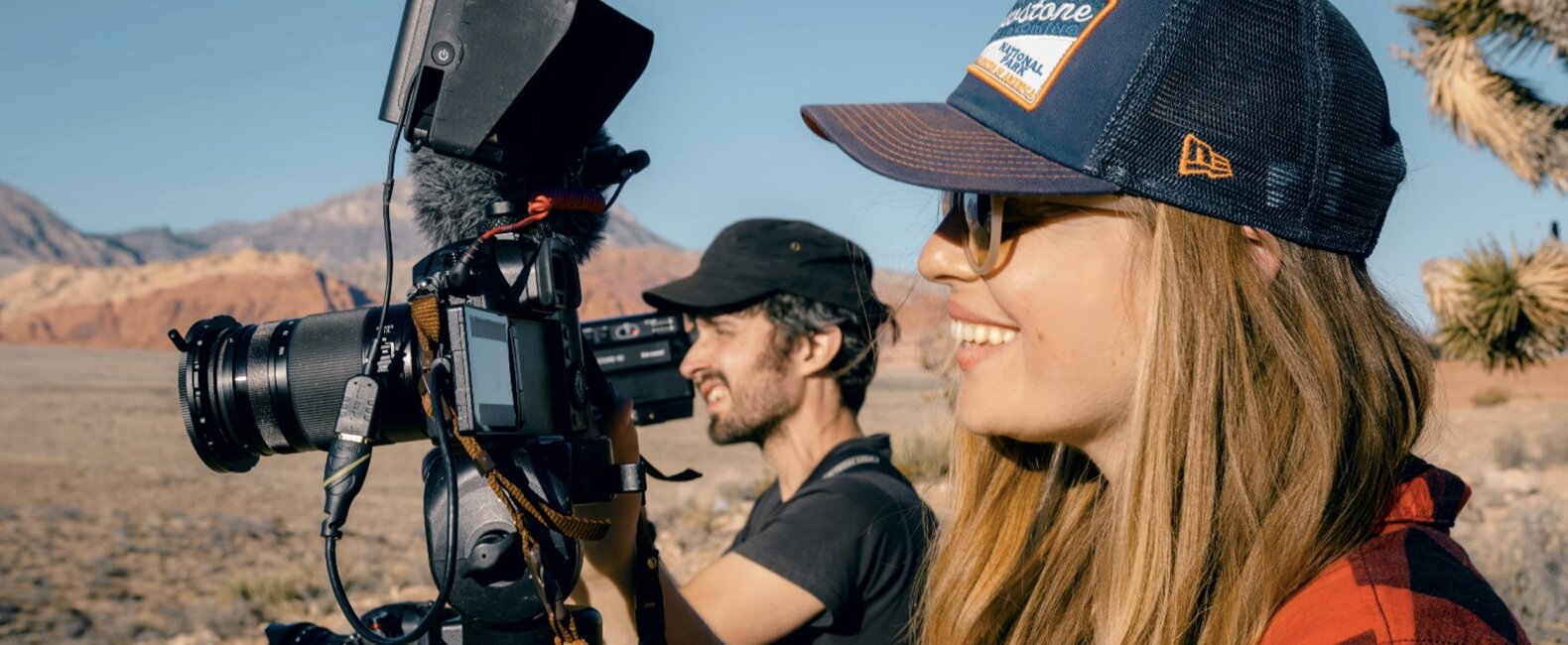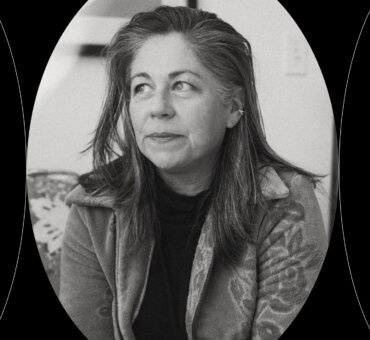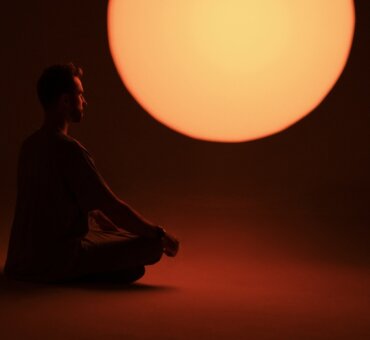Award-winning filmmakers Jim and Melissa Lakey, the husband-and-wife duo behind The Quail & The Dove, capture stunning wedding films in the high desert of Joshua Tree and beyond. Read their interview below to learn what sparked their interest in filmmaking and why they trust Musicbed for cinematic music for their films.
Musicbed: What sparked your passion for filmmaking/storytelling?
We both have creative backgrounds in art, music, writing, and filmmaking. We stumbled across wedding films after we got married and were struck by how fleeting and meaningful our own day had been. Wedding filmmaking allows us to express our creativity in visual composition, color, movement, pacing, and storytelling. And it’s fun! We get to meet so many different people and hear and capture their unique stories.
What keeps you motivated and creatively inspired?
Over the years, we have come to value authenticity and emotion as the most important elements in our work. To be honest, that’s what keeps us doing what we do. After the first few years, the excitement of new editing and filming tricks wore off (we did our fair share of time remapping back in the day!) We find meaning in capturing the real moments of the day and the whole spectrum of emotions: love, kindness, joy, excitement, sentimentality, romance, and even the more difficult emotions that show up on a wedding day, such as grief. Some of the most beautiful moments we have witnessed are when families share stories of their loved ones who have passed away and how they have touched the lives of those present.
For us, capturing a wedding day feels like sacred work. It is a moment in time when families and friends come together to celebrate, reflect on the past for meaning, and look to the future with hope. We consider it a privilege to be able to shape and capture memories that families will cherish for years to come, and it is an inspiring and rewarding way to use our creative abilities.
What makes a story visually appealing? What role does music play in storytelling?
The visuals of a wedding film, for us, are all about congruity with the story. When we started, we were guilty of doing things visually in the edit just because they were on trend or looked cool. They didn’t support the story. Now, it’s important for us that the visuals of a film, the shots we choose, and the camera work we use support the story we’re telling. Music is the backbone of a wedding film. It is the emotional structure on which the film is built. We pick music to highlight different emotional aspects of a wedding day. We often need at least one cinematic-feeling piece with space in it to let the more subtle or quiet parts of the day shine. The music and pacing of the edit are what create the energetic feel for the reception footage. The wrong music can kill the mood of a film and drain all the emotion and energy. It is critical and something we think about a lot.
What elements do you think are essential for crafting a compelling story?
When it comes to filming weddings, the storytelling process starts in pre-production. We get to know the couple and find out what’s unique about their relationship, families, friends, and the events they have planned. This informs what we focus on when capturing the wedding. We often shoot adventure sessions with couples a day or two before the wedding, either a fun or romantic activity with just the two of them or a group activity like a pool party, tennis tournament, rehearsal dinner, etc. These adventure sessions are an opportunity to bring out parts of a couple’s personalities that may not be seen on the wedding day itself.
Shooting weddings is a responsive method of filmmaking. Pre-production is important, but if you rely on it too much, you may not be alive to the magic of the day. We use less and less staged shots in our films, relying more on capturing authentic moments: words and gestures that, if you’re not paying attention, are lost and forgotten. We will, however, create situations that may lead to authentic moments, such as asking the wedding party to sit down and discuss the couple or having family members meet to discuss memories.
The editing and music choices are the final part of the storytelling process. The very first thing we do is watch the selects from our footage with music to feel out what kind of songs we need. Sometimes, we have an idea for a track, but when we listen to it with the footage, it just doesn’t work. Conversely, we have been surprised a number of times by finding music that we wouldn’t have guessed would fit but ended up being perfect. The music is, without exception, the first thing to be laid down in the main editing timeline. We start our edits by creating a narrative structure from all the speeches, vows, and candid moments that we captured. We then layer in the rest of the footage in a way that supports the story.
How important is music in your work?
We often get feedback from couples who hire us that one of the things they love about our work is the music we use. We’ve been told many times that when couples are looking for wedding videographers, they get tired of hearing either “sappy” or “sad” music that is generically used in wedding videos. It is tempting to let the music do all the heavy lifting to create feelings and emotions in a film. However, relying on music that is more dramatic than the footage permits creates an emotional dissonance that alienates viewers. While we love to use what might be described as atmospheric, or even slightly melancholy, music in our films, we use it sparingly and only in appropriate places. Weddings are primarily celebrations, and we believe the music should reflect that and have the right life-affirming energy and feel to it. If the primary mood and music are celebratory, then the contrast of quieter and more thoughtful music becomes more evocative and powerful. That is why Musicbed is such a joy to use, as we can find songs or instrumentals that fit every possible mood.
What advice would you give other filmmakers/creators who are just starting their careers?
The first few years of our business were a time to experiment and find our voice. We started to notice the common thread that runs through our films and develop it. We rented gear to start so that we wouldn’t get into debt, and that way, we could try different cameras and lenses before investing. Your films will be better if you invest more in audio gear and music licensing initially and less in cameras and lenses. You could shoot on your phone (and some wedding filmmakers do), and the results would be good enough. Our advice is to tread carefully financially while having fun and letting loose creatively!
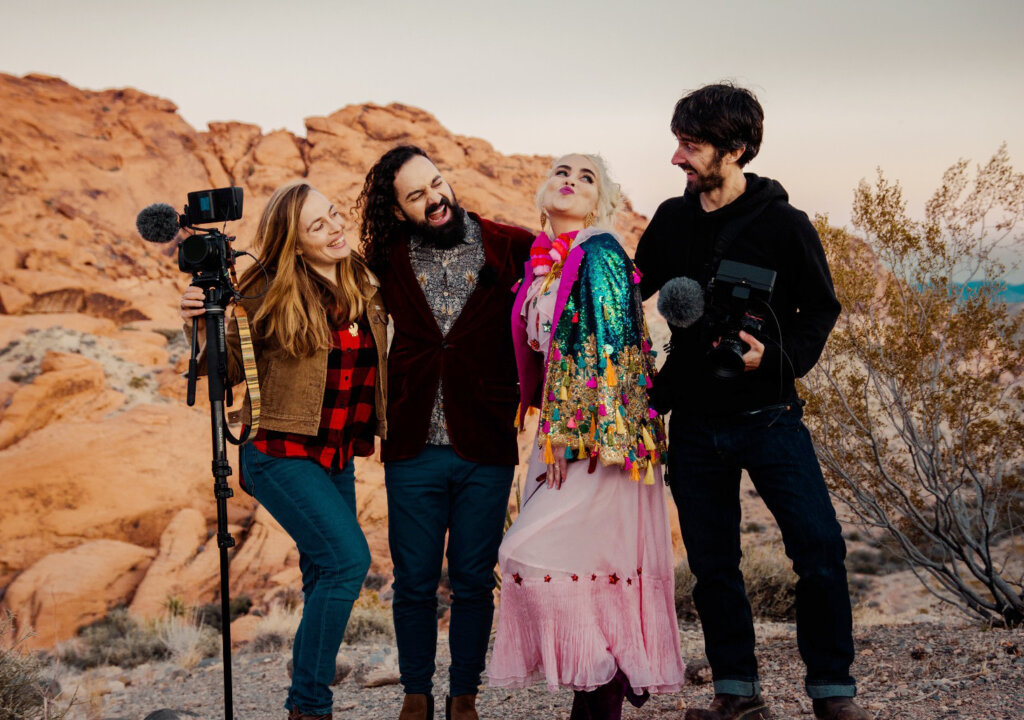
How do you find the balance between pushing boundaries creatively and delivering what your client wants or audience wants to see?
The most important aspect of creativity for us is the sense of bringing something to life. For a wedding, we’re not just capturing events but shaping the memories of a defining moment for many people: the couple, their families and friends, and for generations to come. We love thinking of couples showing their wedding film to their kids and grandkids in the future. We used to equate pushing creative boundaries with edgy shooting and editing techniques. Now, it’s about bringing something forth that affirms and celebrates what’s good about human beings: love, care, and connection. In that way, we don’t find we’re at odds with what our clients want.
What is the most challenging aspect of being a filmmaker/creative?
One of the challenges of being a wedding filmmaker is staying fresh. It is important to know the difference between doing something again and again because it’s the best solution as opposed to being stuck in a creative rut. For instance, we learned a good way to shoot ceremonies early on from a Ray Roman course. It has worked for us pretty much from day one, and we continue to shoot ceremonies in the same way. But for much of the day, we’re attuned to what’s happening around us and looking for moments that will bring a smile to the couple’s faces or tears to their eyes when they watch it back. We will often capture moments that one or both of the couple didn’t see on the day. Our goal is to make a unique film for each couple, and that means bringing fresh eyes and ears to each project. Paying attention is key.
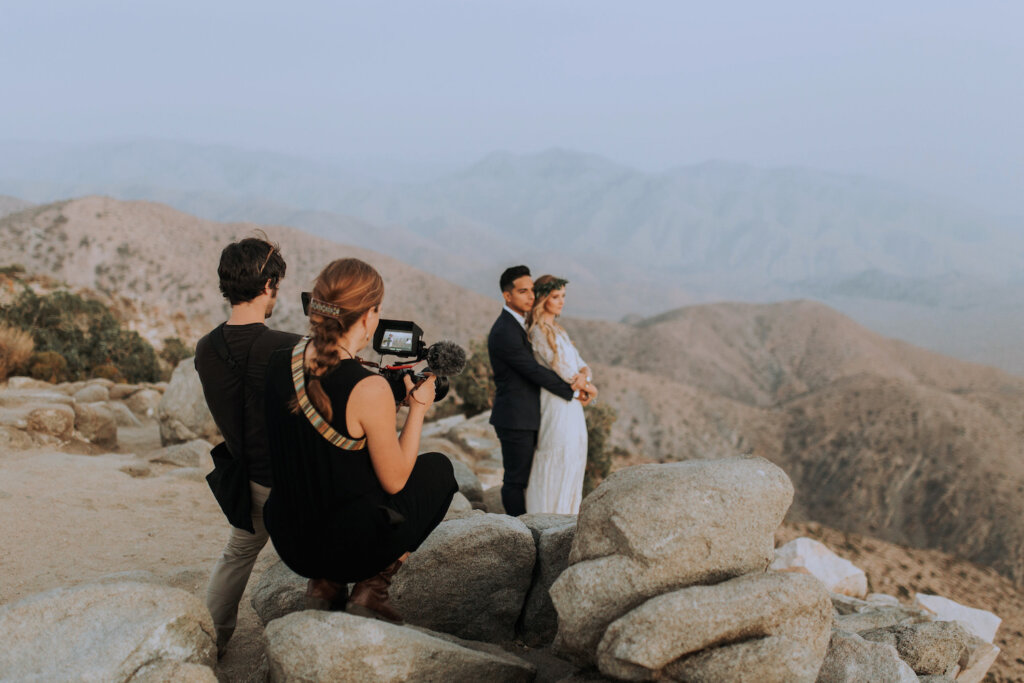
What are some of your favorite projects you’ve worked on?
We love shooting wedding weekends where you get to know the couple and their friends and family over a few days. We shot a wedding weekend at Camp Wandawega in Wisconsin a few years ago, and it was a blast! There was a lake for swimming and kayaking alongside activities like axe-throwing, archery, morning yoga, etc. The more time we get to spend with the people who we’re filming, the better sense we have of the dynamics, humor, and love that binds the relationships. We can then reflect that in the way we shoot and edit.
How do you search for music on Musicbed? What are some tips that you’d give other filmmakers to search on Musicbed?
If you are looking for music with a specific mood or genre in mind, Musicbed’s curated playlists can be quite helpful. You can also search for songs based on their Beats Per Minute (BPM), mood, or attributes. For instance, if you are searching for a song for wedding reception footage, you might want to search for “Fast” BPM and “Fun, Upbeat, Swagger” attributes to find the perfect song. Another great resource is the “What’s New” playlist. When you find a song you like via search or a playlist, you can add it to your own playlist under “My Projects.” We like to organize our playlists by mood or genre to easily find our favorite songs later.
Why do you utilize Musicbed in your work?
A Musicbed subscription is a must-have for wedding filmmakers. There are two things we love about Musicbed: the vast and great quality library and how easy it is to navigate and find the right song. We’ve used other licensing sites in the past and felt frustrated as their search functions and categories were weak or unintuitive. We’ve never failed to find a song on Musicbed that fits our needs. It’s that good.
—
Explore a curated playlist of Jim and Melissa’s go-to music for their stunning wedding films—all available to license only on Musicbed.















































































